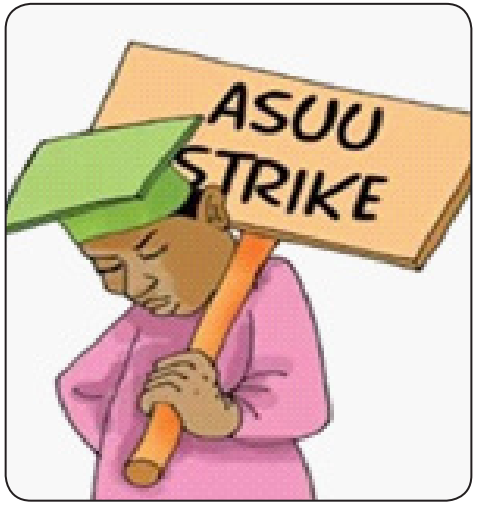ONCE again, Nigeria’s education sector stands on the precipice of paralysis. The Academic Staff Union of Universities (ASUU), weary from years of unfulfilled promises, has embarked on a two-week warning strike, a familiar prelude to what could become another indefinite industrial action. The reason, as always, is the Federal Government’s persistent failure to honour agreements and address long-standing issues that have crippled public universities for decades.
The crux of ASUU’s latest protest are seven major demands: the re-negotiation of the 2009 ASUU-FGN Agreement, sustainable funding for public universities, revitalisation of university infrastructure, an end to the victimisation of ASUU members in certain universities, payment of outstanding salary arrears of between 25–35 per cent, settlement of promotion arrears spanning over four years, and remittance of outstanding third-party deductions.
These demands are meant to serve as a blueprint for repositioning Nigerian universities through better funding, improved staff welfare, and infrastructural development. Yet, sixteen years later, much of its content remains unimplemented. In fact, they form the recurring themes of every ASUU strike since the early 2000s.
At its National Executive Council (NEC) meeting held on September 28, 2025, at the University of Abuja, the union expressed deep frustration over what it described as the government’s “consistent refusal” to meet its obligations. The ASUU President, Professor Christopher Piwuna, stated that the union had issued a 14-day ultimatum to the Federal Government, after which the two-week warning strike commenced.
The Senate has since intervened, scheduling a meeting with the Minister of Education, Dr. Tunji Alausa, in an effort to prevent a total shutdown. During his address to lawmakers, Professor Piwuna reiterated that sustainable funding remains the only viable solution to ending these recurring disruptions. He pointed out that while the National Assembly approved ₦150 billion for universities, only ₦50 billion has so far been released, and even that remained stuck at the Ministry of Education, where plans are allegedly underway to share the funds with polytechnics and colleges of education.
This revelation underscores the lack of seriousness and coordination that has become synonymous with the management of Nigeria’s education sector. The ₦150 billion was approved specifically for universities, yet bureaucratic bottlenecks and alleged misallocation threaten to derail its purpose.
The implications of yet another ASUU strike are dire. Each time universities shut down, students are forced to put their dreams on hold, academic calendars are disrupted, and the quality of education deteriorates further. Many students lose motivation, while others seek alternatives abroad, contributing to the brain drain that continues to haunt the nation. The universities themselves, already struggling with outdated facilities and underfunded programmes, find it increasingly difficult to maintain global competitiveness.
Every new administration acknowledges the problem, sets up committees, and makes pledges, only to abandon them once the threat of strike action subsides. This pattern has left ASUU with little choice but to resort to industrial action as its only bargaining tool, an outcome that punishes students more than it pressures policymakers.
However, while ASUU’s grievances are legitimate, we call on the union to also consider the larger national interest. Repeated strikes, no matter how justified, have eroded public confidence in the university system and inflicted lasting damage on Nigeria’s youth. Many graduates are ill-prepared for the workforce, not because of lack of intelligence, but because of constant disruptions to their learning. ASUU must therefore explore innovative forms of engagement that do not always lead to the complete shutdown of academic activities.
On the part of the Federal Government, it is high time it abandoned the “no work, no pay” policy and other intimidation tactics that only deepen hostility. The administration must demonstrate genuine commitment by releasing the approved funds, fulfilling past agreements, and creating a sustainable framework for university financing. Education is not an expense; it is an investment, one that determines the social, economic, and technological destiny of any nation.
Finally, we advise both sides to step back from the brink and finally deliver the stability and quality that the university system and the country at large so desperately need.


